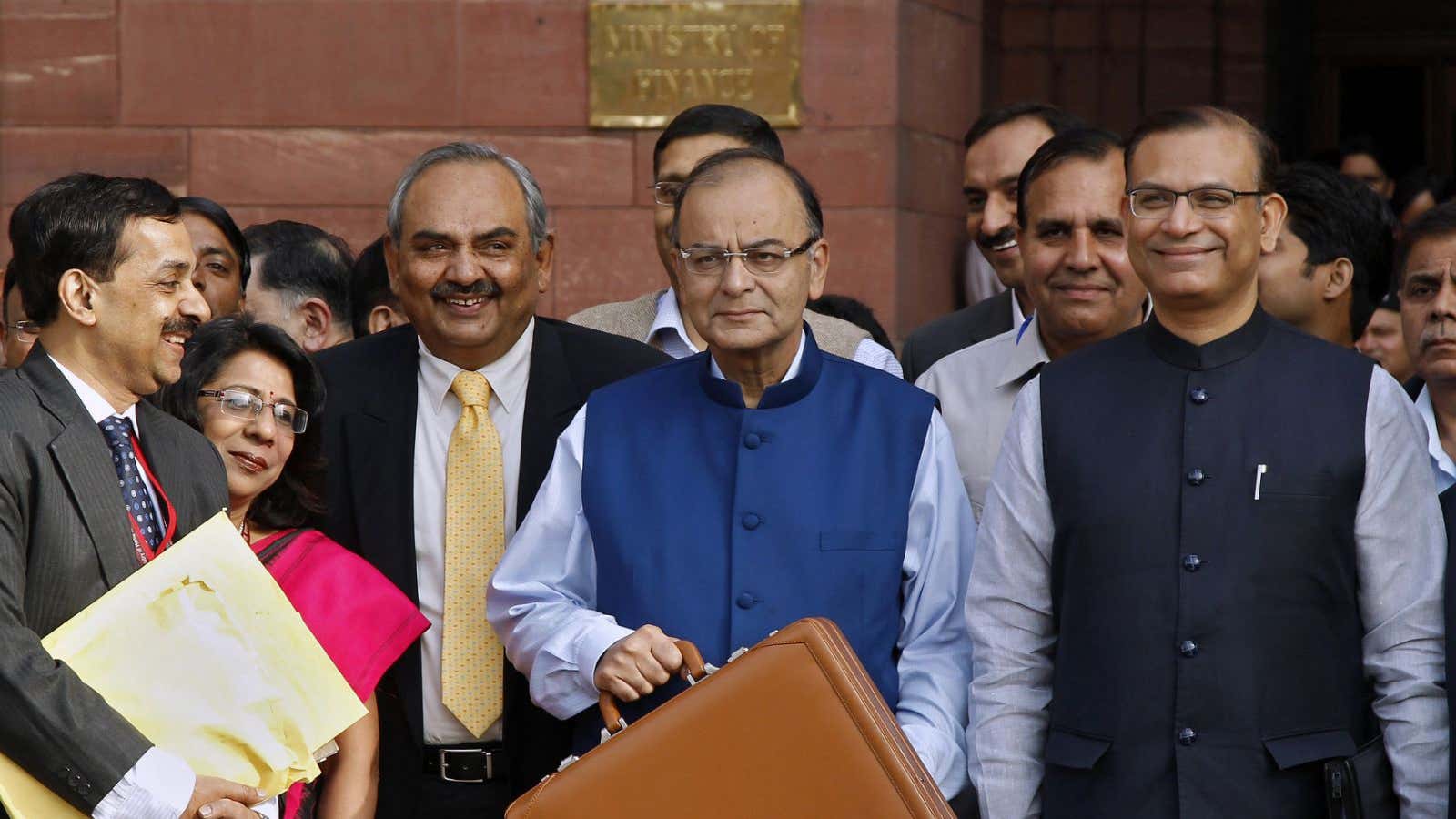The fine art of Indian budget-making—with its liberal dose of populism, sops for corporates and optimistic forecasting—is an exercise that Yashwant Sinha knows well.
The longtime Bharatiya Janata Party leader was India’s finance minister twice, in two different governments between 1990 and 2002.
In an interview with Quartz, Sinha lists out his expectations from finance minister Arun Jaitley’s budget today (Feb. 28).
Here are the edited excerpts.
Fiscal deficit
The finance minister will have to bend over backwards to ensure that he not only pegs the fiscal deficit at 4.1% in the current year’s budget—but follows the glide path already announced of reducing it and eliminating the revenue deficit over the next three or four years.
And for next year, he must bring it down to 3.6% or so, so that he keeps to the glide path of reducing it by 50 basis points or so every year… so that is the first important challenge, coupled with the demand by many for fiscal expansion to get the investment cycle going.
Taxation
I will personally be against the finance minister coming out with a dhobi list of items on which he has raised excise and customs duty, and items on which he has reduced excise and customs duty. So, how will he mesh the two is a challenge.
My own feeling is that he will give some concessions on the direct taxes side to encourage savings, so (Rs) one and a half lakh could become (Rs) two lakh. And there could be some increase in the threshold or the exemptions for the individual income tax payees.
But on the indirect taxes side, that option is not there now that, but I definitely want to see in this budget speech a clear roadmap, a short-term roadmap for the implementation of the GST (goods and services tax) as well as the DTC (direct taxes code).
Social sector
Is he going to expand on the expenditure on rural roads, or on agriculture, on rural electrification, health, education? These are all areas where people will be looking at closely.
When I’m talking on the reform side, what is that he is going to do on labour market for instance. I talked about it in my 2001 budget speech and it remains where it was in 2001. So I don’t know whether they’ll be able to take it forward.
Disinvestment
I would want him to take courage in both hands and reduce the government’s equity in public sector banks. I would urge an aggressive, disinvestment privatisation programme. I would go to the extent of suggesting that we should capitalize on the goodwill earned of the NRIs (non-resident Indians), PIOs (persons of Indian origin) and do what I had done in my time through the Resurgent India bonds and the Millennium Development bonds for development of infrastructure in our country.
I am reading in the media that he might fix the disinvestment target at Rs45,000 crore. Why not take it to Rs60,000, why not take it to Rs70,000 crore? And disinvestment is not the route. The route is what we had done earlier—when Arun Shourie was disinvestment minister—of going for bulk sales through the auction route and privatisation. That’s the way we should proceed.
Will Delhi elections matter?
The finance minister has already made a statement to the press saying that reforms will not be a casualty of the Delhi election results, but I personally feel that the pressure on him to present a good budget will increase.
The Delhi results have come on (Feb.) 10th, which is already quite late so impact on the budget, but I think the pressure on the finance minister will be to present an even better budget than he was planning.
